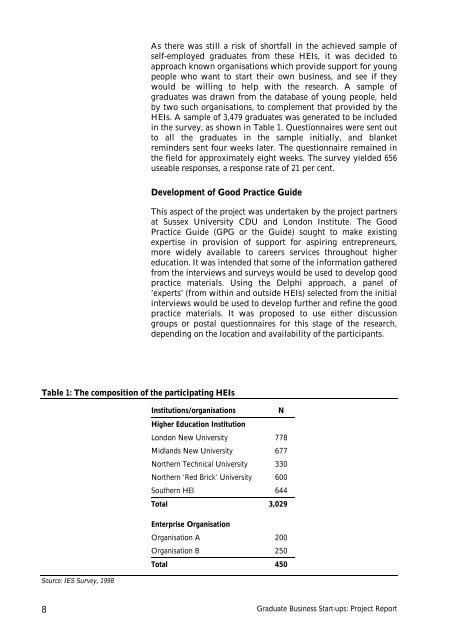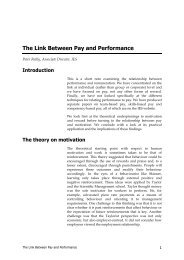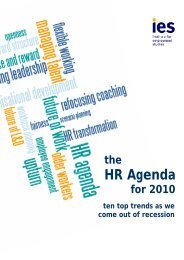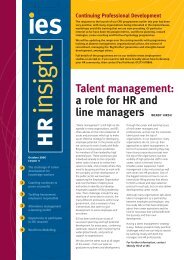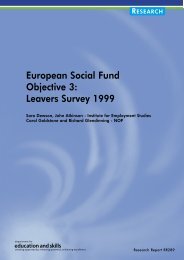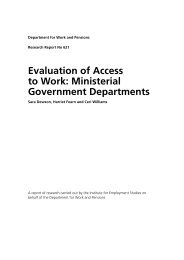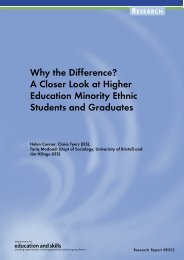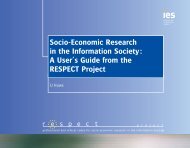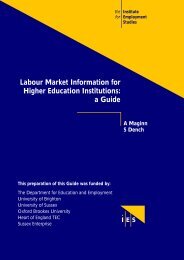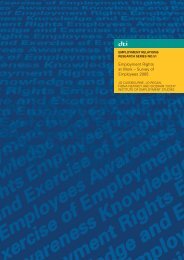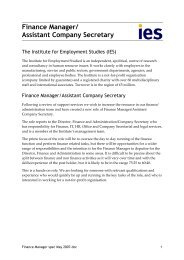Graduate Business Start-ups Project Report - The Institute for ...
Graduate Business Start-ups Project Report - The Institute for ...
Graduate Business Start-ups Project Report - The Institute for ...
You also want an ePaper? Increase the reach of your titles
YUMPU automatically turns print PDFs into web optimized ePapers that Google loves.
As there was still a risk of shortfall in the achieved sample of<br />
self-employed graduates from these HEIs, it was decided to<br />
approach known organisations which provide support <strong>for</strong> young<br />
people who want to start their own business, and see if they<br />
would be willing to help with the research. A sample of<br />
graduates was drawn from the database of young people, held<br />
by two such organisations, to complement that provided by the<br />
HEIs. A sample of 3,479 graduates was generated to be included<br />
in the survey, as shown in Table 1. Questionnaires were sent out<br />
to all the graduates in the sample initially, and blanket<br />
reminders sent four weeks later. <strong>The</strong> questionnaire remained in<br />
the field <strong>for</strong> approximately eight weeks. <strong>The</strong> survey yielded 656<br />
useable responses, a response rate of 21 per cent.<br />
Development of Good Practice Guide<br />
This aspect of the project was undertaken by the project partners<br />
at Sussex University CDU and London <strong>Institute</strong>. <strong>The</strong> Good<br />
Practice Guide (GPG or the Guide) sought to make existing<br />
expertise in provision of support <strong>for</strong> aspiring entrepreneurs,<br />
more widely available to careers services throughout higher<br />
education. It was intended that some of the in<strong>for</strong>mation gathered<br />
from the interviews and surveys would be used to develop good<br />
practice materials. Using the Delphi approach, a panel of<br />
‘experts’ (from within and outside HEIs) selected from the initial<br />
interviews would be used to develop further and refine the good<br />
practice materials. It was proposed to use either discussion<br />
gro<strong>ups</strong> or postal questionnaires <strong>for</strong> this stage of the research,<br />
depending on the location and availability of the participants.<br />
Table 1: <strong>The</strong> composition of the participating HEIs<br />
Institutions/organisations<br />
N<br />
Higher Education Institution<br />
London New University 778<br />
Midlands New University 677<br />
Northern Technical University 330<br />
Northern ‘Red Brick’ University 600<br />
Southern HEI 644<br />
Total 3,029<br />
Enterprise Organisation<br />
Organisation A 200<br />
Organisation B 250<br />
Total 450<br />
Source: IES Survey, 1998<br />
8<br />
<strong>Graduate</strong> <strong>Business</strong> <strong>Start</strong>-<strong>ups</strong>: <strong>Project</strong> <strong>Report</strong>


